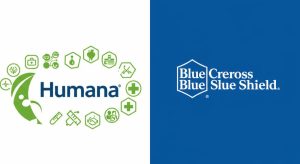Table of Contents
-
- Introduction
- Understanding Medicare Coverage for Cardiac Rehabilitation
- Exploring the Benefits of Cardiac Rehabilitation for Seniors
- How to Find a Cardiac Rehabilitation Program That Accepts Medicare
- What to Expect During a Cardiac Rehabilitation Program
- Tips for Making the Most of Your Cardiac Rehabilitation Program
- Conclusion
“Get Your Heart Back on Track with Medicare Coverage for Cardiac Rehab!”
Introduction
ilitation
Cardiac rehabilitation is an important part of the recovery process for those who have experienced a heart attack, heart surgery, or other cardiac event. Medicare coverage for cardiac rehabilitation can help those who are recovering from a cardiac event to access the care they need to improve their health and quality of life. This article will provide an overview of Medicare coverage for cardiac rehabilitation, including what services are covered, who is eligible, and how to access care. It will also discuss the potential benefits of cardiac rehabilitation and how to find a provider.
Find Medicare Plans in 3 Easy Steps
We can help get up to $0 monthly premium Medicare plans
Understanding Medicare Coverage for Cardiac Rehabilitation
Medicare coverage for cardiac rehabilitation is an important benefit for those who have experienced a heart attack, coronary artery bypass graft (CABG) surgery, or other heart-related conditions. Cardiac rehabilitation is a medically supervised program designed to help patients recover from a heart event and reduce their risk of future heart problems.
Medicare Part B covers medically necessary cardiac rehabilitation services, including exercise, education, and counseling. To be eligible for coverage, the services must be provided by a Medicare-approved provider and must be ordered by a doctor. The program must also meet certain criteria, such as being provided in a hospital or outpatient setting, and must be medically necessary for the patient’s condition.
Medicare Part B covers up to 36 sessions of cardiac rehabilitation over a period of up to 36 weeks. The coverage includes the cost of the program itself, as well as any necessary medical supplies and equipment. Medicare Part B also covers the cost of any necessary tests or procedures that are part of the program.
Patients are responsible for any applicable copayments or coinsurance for the services. Medicare Part B also requires that patients pay an annual deductible before coverage begins.
It is important to note that Medicare coverage for cardiac rehabilitation is limited to medically necessary services. Services that are not medically necessary, such as massage therapy or acupuncture, are not covered by Medicare.
If you have experienced a heart event and are considering cardiac rehabilitation, it is important to speak with your doctor to determine if the program is right for you. Your doctor can also help you understand your Medicare coverage and any applicable costs.
Exploring the Benefits of Cardiac Rehabilitation for Seniors
Cardiac rehabilitation is an important part of the recovery process for seniors who have experienced a heart attack, heart surgery, or other cardiac event. It is a comprehensive program that includes exercise, education, and counseling to help seniors improve their physical and mental health. This article will explore the benefits of cardiac rehabilitation for seniors and how it can help them lead healthier, more active lives.
Cardiac rehabilitation is designed to help seniors improve their physical health and reduce their risk of future cardiac events. Through exercise, seniors can improve their cardiovascular fitness, reduce their risk of heart disease, and improve their overall quality of life. Exercise can also help seniors maintain a healthy weight, which is important for reducing the risk of heart disease. Additionally, exercise can help seniors manage their blood pressure, cholesterol, and other risk factors for heart disease.
Cardiac rehabilitation also provides education and counseling to help seniors understand their condition and make lifestyle changes that can improve their health. Education can help seniors understand the importance of following their doctor’s orders and taking their medications as prescribed. Counseling can help seniors manage stress, which is an important factor in reducing the risk of heart disease.
Finally, cardiac rehabilitation can help seniors stay socially active and connected to their community. Through exercise classes and other activities, seniors can stay connected to their peers and build relationships that can help them stay motivated and engaged in their recovery.
In conclusion, cardiac rehabilitation can provide seniors with the tools they need to improve their physical and mental health. Through exercise, education, and counseling, seniors can reduce their risk of future cardiac events and lead healthier, more active lives.
How to Find a Cardiac Rehabilitation Program That Accepts Medicare
Finding a cardiac rehabilitation program that accepts Medicare can be a daunting task. However, with the right resources and information, it is possible to locate a program that meets your needs.
First, it is important to understand what cardiac rehabilitation is and how it can help you. Cardiac rehabilitation is a program designed to help people with heart disease recover and improve their health. It typically includes exercise, education, and counseling to help patients manage their condition and reduce their risk of future heart problems.
Once you understand the benefits of cardiac rehabilitation, you can begin your search for a program that accepts Medicare. Start by contacting your local Medicare office. They can provide you with a list of approved providers in your area. You can also contact your doctor or healthcare provider for a referral.
Once you have a list of potential programs, you should contact each one to find out if they accept Medicare. Ask about their services, fees, and any other information you need to make an informed decision.
Finally, you should also consider the quality of care provided by the program. Ask about their staff, their experience, and any other information that will help you make an informed decision.
By taking the time to research and compare programs, you can find a cardiac rehabilitation program that meets your needs and accepts Medicare. With the right resources and information, you can find a program that will help you improve your health and reduce your risk of future heart problems.
Find Medicare Plans in 3 Easy Steps
We can help get up to $0 monthly premium Medicare plans
What to Expect During a Cardiac Rehabilitation Program
Cardiac rehabilitation is a medically supervised program designed to help individuals with heart disease recover and improve their overall health. It is typically recommended for those who have had a heart attack, heart surgery, or other heart-related conditions.
The program typically consists of three phases: an initial assessment, an exercise program, and a maintenance program. During the initial assessment, a healthcare professional will evaluate the patient’s medical history, lifestyle, and risk factors for heart disease. This assessment will help the healthcare team develop an individualized plan for the patient.
The exercise program is designed to help the patient gradually increase their physical activity level. This may include walking, jogging, swimming, or other activities. The patient will be closely monitored by a healthcare professional to ensure that they are exercising safely and at an appropriate intensity.
The maintenance program is designed to help the patient maintain their improved health and fitness level. This may include lifestyle changes such as quitting smoking, eating a healthy diet, and managing stress. The patient will also receive ongoing education about heart health and risk factors.
Cardiac rehabilitation can help improve the patient’s quality of life and reduce their risk of future heart problems. It is important to follow the program as prescribed by the healthcare team in order to get the most benefit.
Tips for Making the Most of Your Cardiac Rehabilitation Program
1. Follow the Program: It is important to follow the program as prescribed by your healthcare provider. This includes attending all scheduled sessions, completing any assigned exercises, and following the dietary and lifestyle recommendations.
2. Stay Motivated: Cardiac rehabilitation can be a long and challenging process. It is important to stay motivated and focused on your goals. Set realistic goals and reward yourself for meeting them.
3. Communicate with Your Team: Make sure to communicate with your healthcare team about any changes in your condition or any concerns you may have. This will help ensure that your program is tailored to your individual needs.
4. Monitor Your Progress: Keep track of your progress by taking notes and tracking your progress. This will help you stay motivated and on track with your program.
5. Stay Active: Exercise is an important part of cardiac rehabilitation. Make sure to stay active and participate in the exercises prescribed by your healthcare team.
6. Eat Healthy: Eating a healthy diet is essential for a successful cardiac rehabilitation program. Make sure to follow the dietary recommendations provided by your healthcare team.
7. Stay Positive: It is important to stay positive and focus on the progress you are making. This will help you stay motivated and on track with your program.
8. Ask Questions: If you have any questions or concerns, make sure to ask your healthcare team. They are there to help you and will be able to provide you with the answers you need.
Find Medicare Plans in 3 Easy Steps
We can help get up to $0 monthly premium Medicare plans
Conclusion
In conclusion, Medicare coverage for cardiac rehab is an important benefit for those who have had a heart attack or other cardiac event. It can help reduce the risk of future cardiac events, improve quality of life, and reduce healthcare costs. Medicare coverage for cardiac rehab is an important part of a comprehensive approach to cardiac care.





